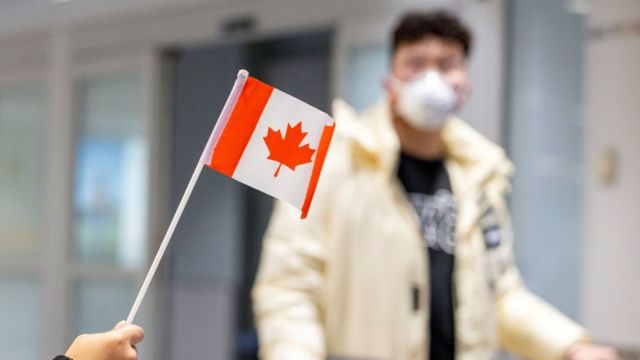Amid a pause on Canada PR applications, here’s why queries for ‘Super Visa’ go up
The Super Visa offers families a way to reunite for longer periods without having to wait for years under the PGP backlog.
 The development was implemented to apply heavier scrutiny to the international education sector of the country. (File Photo)
The development was implemented to apply heavier scrutiny to the international education sector of the country. (File Photo)Canada’s recent pause on new PR applications under the Parents and Grandparents Programme (PGP), which previously allowed parents and grandparents to immigrate as Permanent Residents (PRs), has led to an increased interest in ‘Super Visa’.
The Super Visa offers families a way to reunite for longer periods without having to wait for years under the PGP backlog. It is a multiple-entry visa that allows parents and grandparents of Canadian Permanent Residents (PRs) or citizens to stay in Canada for extended periods.
Experts, however, noted the majority among the queries include concerns about how long will Super Visa remain open due to uncertainties in Canada’s visa policies, duration in processing work, apprehensions about restrictions.
Canada has recently introduced changes to its visa policy, scaling back its once-standard practice of issuing 10-year multiple-entry visas.
“Parents or grandparents eligible under the Super Visa category are panicking, apprehensive that Canada may stop offering this facility in the future due to recent changes,” said one expert.
How Super Visa differs from PR
According to immigration experts, unlike PR for parents and grandparents, the Super Visa is significantly different in terms of stay duration and benefits.
“A Super Visa allows parents and grandparents to stay in Canada for up to five years at a time, with an option to extend their stay by an additional two years. In contrast, PR provides an indefinite stay, enabling parents and grandparents to live permanently in Canada,” said Canada immigration expert Gurpreet Singh.
He said that only PR and citizens can invite their parents or grandparents under the Super Visa category.
Singh added that Super Visa holders are not entitled to the benefits enjoyed by PR holders, such as public healthcare or pensions. Instead, they must purchase private health insurance costing around Canadian Dollar 1000–2,000 per person annually to cover medical expenses during their stay, and undergo a medical examination.
PR holders, however, are fully covered under Canada’s public healthcare system, he explained.
Immigration experts highlighted that financial and income requirements differ between the Super Visa and PR under the Parents and Grandparents Program (PGP). While both require the sponsor to demonstrate financial capability, the Super Visa specifically mandates meeting the Low-Income Cut-Off (LICO) to ensure that the sponsor can support the visiting parents or grandparents financially.
The processing times for Super Visa applications are significantly shorter, typically taking weeks or a few months, whereas PR applications under the PGP can take years due to high demand, limited quotas, and the lottery-based selection process. This makes the Super Visa a more practical option for families seeking reunification in the short to medium term.
Eligibility for Super Visa
The applicant must be the parent or grandparent of a Canadian citizen or PR holder. Students cannot sponsor their parents or grandparents for a Super Visa. The sponsor must provide a letter of invitation detailing the relationship, proof of financial support, and plans for the visitor’s stay.
The sponsor must meet the LICO threshold, which depends on the family size, including the sponsor, their immediate family members, and the visiting parents or grandparents. For 2024, the minimum income ranges from CAD 27,573 to over CAD 41,000.Applicants must demonstrate strong ties to their home country to assure Canadian authorities they will return once their visa expires.
The Super Visa, while offering extended stays, requires applicants to maintain non-immigrant status. Holders cannot work or study in Canada but benefit from longer visit durations compared to regular visitor visas.
Experts said that with Super Visa, longer stay is permissible but the visitor will have non-immigrant status. Also, Super Visa holders must periodically renew their visa and cannot apply for Canadian citizenship. But still the Super Visa offers a much longer stay duration compared to a regular visitor visa, which typically allows stays of only six months at a time. This makes it ideal for families wanting extended visits without the complexities of P, said Gurepreet Singh.







